
FEATURE: Home of the Brave?
In case you hadn’t noticed, 2007 is quickly becoming the year of the political drama, and not just at the cinema. It may be more than a year before the next U.S. presidential elections, but you’d hardly know it the way senators Clinton and Obama have already taken to the campaign trail. And theirs is not the only political talking point to have erupted in recent months. Despite the fallout from the mid-term elections, Bush is still looking to escalate matters in the middle-east, Tony Blair is retreating and retiring, and Howard can add Maxine McKew to the list of people he won’t be getting a Christmas card from this year – right after David Hicks, Kevin Rudd, and the environment! Given the gradual build up of these tensions it’s perhaps not all that surprising that ‘politics’ would eventually find its way back onto the Hollywood menu.
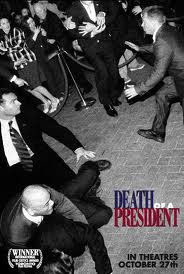 Released recently, Robert DeNiro’s The Good Shepherd, an epic drama retracing the origins of the CIA is the first of a number of ‘political’ narratives to be screened within Australia over the coming weeks. Man of the Year, Barry Levinson’s political satire starring Robin Williams, Bobby, Emilio Estevez’ salute to Robert Kennedy, and Death of a President, a ficto-documentary that imagines an assassination attempt on George W. Bush are all due for release this month. Yet, far from signalling a sudden trend, the re-emergence of the American ‘politico drama’ is indicative of a growing politicisation of mainstream cinema that has taken place over the past few years. In spite of the neo-conservative tide that currently holds sway in the West, Hollywood cinema has, at least in glimpses, managed to retain an audible voice of political protest. Until recently, the loudest of those voices have emanated from within the resurgent form of documentary filmmaking, re-popularised through directors such as Michael Moore. In addition to Bowling For Columbine and Fahrenheit 9/11, films such as The Fog of War, Why We Fight, The Yes Men, The Corporation, and Outfoxed all enjoyed significant releases, taking aim at the Bush administration, or the perceived culture of violence and greed that pervades contemporary America. The question that begs asking then is, in what ways do any of these more ‘fictional’ narratives contribute to the current political discourse within American cinema?
Released recently, Robert DeNiro’s The Good Shepherd, an epic drama retracing the origins of the CIA is the first of a number of ‘political’ narratives to be screened within Australia over the coming weeks. Man of the Year, Barry Levinson’s political satire starring Robin Williams, Bobby, Emilio Estevez’ salute to Robert Kennedy, and Death of a President, a ficto-documentary that imagines an assassination attempt on George W. Bush are all due for release this month. Yet, far from signalling a sudden trend, the re-emergence of the American ‘politico drama’ is indicative of a growing politicisation of mainstream cinema that has taken place over the past few years. In spite of the neo-conservative tide that currently holds sway in the West, Hollywood cinema has, at least in glimpses, managed to retain an audible voice of political protest. Until recently, the loudest of those voices have emanated from within the resurgent form of documentary filmmaking, re-popularised through directors such as Michael Moore. In addition to Bowling For Columbine and Fahrenheit 9/11, films such as The Fog of War, Why We Fight, The Yes Men, The Corporation, and Outfoxed all enjoyed significant releases, taking aim at the Bush administration, or the perceived culture of violence and greed that pervades contemporary America. The question that begs asking then is, in what ways do any of these more ‘fictional’ narratives contribute to the current political discourse within American cinema?
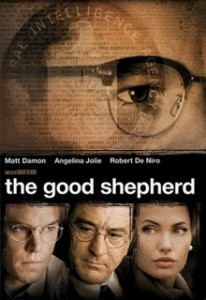 Given the commercial imperatives that accompany Hollywood narrative cinema, it’s not surprising that of all these films (I have yet to see Death of a President) none offer a particularly radical viewpoint of the American political system. That’s not to say however, that these films are necessarily reactionary or amount to a simple ‘dumbing down’ of the ‘real’ political questions confronting the U.S.A. Quite the contrary, as a demonstration of the relationship between politics and cinema, The Good Shepherd, Man of the Year and Bobby speak volumes about the current state of American culture. In The Good Shepherd, the white, middle class, patriarchal ‘brotherhood’ that underlines the formation of the CIA is repeatedly contrasted with the lead character, Edward Wilson’s (Matt Damon) own ‘family’. As with The Godfather movies from which Shepherd takes a number of its thematic cues, the ‘institutional’ family ultimately takes precedence over the ‘domestic’ one.
Given the commercial imperatives that accompany Hollywood narrative cinema, it’s not surprising that of all these films (I have yet to see Death of a President) none offer a particularly radical viewpoint of the American political system. That’s not to say however, that these films are necessarily reactionary or amount to a simple ‘dumbing down’ of the ‘real’ political questions confronting the U.S.A. Quite the contrary, as a demonstration of the relationship between politics and cinema, The Good Shepherd, Man of the Year and Bobby speak volumes about the current state of American culture. In The Good Shepherd, the white, middle class, patriarchal ‘brotherhood’ that underlines the formation of the CIA is repeatedly contrasted with the lead character, Edward Wilson’s (Matt Damon) own ‘family’. As with The Godfather movies from which Shepherd takes a number of its thematic cues, the ‘institutional’ family ultimately takes precedence over the ‘domestic’ one.
However, as Wilson becomes increasingly involved in ‘the company’, sacrificing morals and family within a duplicitous game of political espionage, the film offers itself as an apt parable of the contemporary scene. Aligning the CIA with an exclusive fraternal society, The Good Shepherd depicts the political centre of America as lost within an inescapable void of self-serving greed, and hollow political rhetoric. The film makes clear that the ‘greater good’ exists only for a privileged minority. At one point an informant questions Wilson, “We Italians have our families, the church, the Irish their homeland, the Jews their tradition, even the niggers have got their music. What do you have?” Wilson’s reply is chilling in its contemporary resonance, “We have the United States of America. The rest of you are just visitors”.
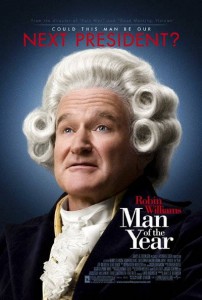 If The Good Shepherd looks backwards in history for its cultural critique, then Man of the Year situates it satirical vision of American politics in a decidedly more contemporary setting. Drawing on incidents such as the faulty Florida ballots that led to George W. Bush’s election in 2000, the film revolves around a talk-show comedian, Tom Dobbs (Robin Williams) who becomes president as a result of a computer error. With its echoes of Levinson’s 1997 political satire, Wag The Dog, the film sets about exploding the hypocrisies of everything from campaign spending (“How many school books could you buy with 200 million dollars?”) to the health care system (“They’ll pay for your Viagra but not for your glasses – In other words you can get a hard on but you can’t see where to put it”).
If The Good Shepherd looks backwards in history for its cultural critique, then Man of the Year situates it satirical vision of American politics in a decidedly more contemporary setting. Drawing on incidents such as the faulty Florida ballots that led to George W. Bush’s election in 2000, the film revolves around a talk-show comedian, Tom Dobbs (Robin Williams) who becomes president as a result of a computer error. With its echoes of Levinson’s 1997 political satire, Wag The Dog, the film sets about exploding the hypocrisies of everything from campaign spending (“How many school books could you buy with 200 million dollars?”) to the health care system (“They’ll pay for your Viagra but not for your glasses – In other words you can get a hard on but you can’t see where to put it”).
Robin Williams’ measured comic performance is underscored by a pointed seriousness and consistently hits its mark. However, in spite of its wishful satire Man of the Year is still a politically pragmatic work. Curtailing its idealism in the latter stages, the narrative succumbs to the inevitable ‘wake-up’ call – Presidents like Tom Dobbs don’t (and could never) get elected in the States. The best we can hope for, at least from the film’s perspective is that there’ll always be ‘satirists’ to ‘shake things up’. Whether the ending is intended as an indictment of the potential for ‘real’ change or merely a cynical cop-out, Man of the Year still works as a mainstream political provocation.
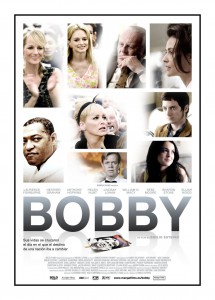 Of the three films, Bobby is the biggest disappointment. Despite framing its narrative in the context of political turmoil (war, racial violence, civil unrest) the film sidelines the contemporary relevance of these issues through an attention to the fairly banal fictionalised characters who inhabit the hotel, where later that night Bobby Kennedy will be shot. It’s clear from Estevez’ direction that he holds Kennedy (and what he symbolised) in high esteem but unfortunately the man’s politics are consistently superseded by the cult-of-personality that he imposes upon the figure. At one point, an African American character laments that, “now that Dr. King is gone, there’s no one left but Bobby”.
Of the three films, Bobby is the biggest disappointment. Despite framing its narrative in the context of political turmoil (war, racial violence, civil unrest) the film sidelines the contemporary relevance of these issues through an attention to the fairly banal fictionalised characters who inhabit the hotel, where later that night Bobby Kennedy will be shot. It’s clear from Estevez’ direction that he holds Kennedy (and what he symbolised) in high esteem but unfortunately the man’s politics are consistently superseded by the cult-of-personality that he imposes upon the figure. At one point, an African American character laments that, “now that Dr. King is gone, there’s no one left but Bobby”.
Rather than letting the politics ‘speak’ through characterisation, the dialogue is frequently too hackneyed to provide either ‘character’ or genuine political discussion. All that remains in the end is an overriding sense of melancholic loss for what might’ve been, a sentiment that similarly erases any real political message. In the chaotic aftermath of the shooting, RFK’s famous, “The Mindless Menace of Violence” speech is voiced over images of shocked faces and frantic staff. The words, if they hadn’t been diluted by the visuals may ultimately have provided the film with something to say.
“…there is another kind of violence, slower but just as deadly destructive as the shot or the bomb in the night. This is the violence of institutions; indifference and inaction and slow decay. This is the violence that afflicts the poor, that poisons relations between men because their skin has different colors. This is the slow destruction of a child by hunger, and schools without books and homes without heat in the winter”.
Of these current political films it could be said that where’s smoke there’s probably fire, even if on occasion it gets buried within the Hollywood haze. And if politicians like Bush aren’t likely to get burned by the cinematic flames, just knowing that they’re alight makes me slightly less pessimistic. If nothing else, it brings a small measure of hope that in spite of the power of America’s cultural hierarchy, so-called ‘dissident’ perspectives are still able to find a voice. Those same voices which at present seem all too silent here in Australia.
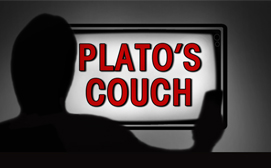

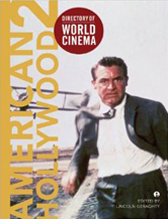
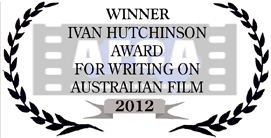
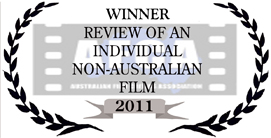
RSS feed for comments on this post. TrackBack URI